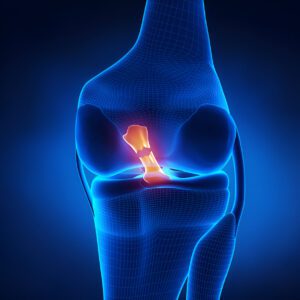Could Meniscus Transplantation Be the Game-Changer for Knee Health?
If you’ve ever experienced knee pain, you know how much it can slow you down. For athletes and fitness enthusiasts, keeping your knees in top shape is crucial for staying on track. But what happens when your meniscus—the cushiony cartilage in your knee—gets damaged beyond repair? One option is meniscus transplantation. This blog post explores whether meniscus transplantation could be the ultimate solution for those who have undergone a total meniscectomy. Read on to discover everything you need to know about this innovative procedure, its benefits, and what it could mean for your knee health.
The Meniscus and Its Key Role in Knee Health

The meniscus is a crescent-shaped piece of cartilage that acts as a shock absorber between your shinbone and thighbone. It helps distribute weight and stabilizes your knee when you walk, run, or jump. Without it, your knee would feel the strain from every movement, and your bones could grind against each other.
Maintaining good knee health is essential for athletes and anyone who leads an active lifestyle. A healthy meniscus contributes to overall knee stability and helps prevent injuries. Damage to the meniscus can lead to pain, swelling, and long-term complications if not treated properly.
Understanding the importance of the meniscus makes it clear why preserving it, or finding suitable alternatives, is crucial. For those who have already lost their meniscus due to injury or surgery, the lack of this critical cushion can lead to severe issues down the road.
What is Total Meniscectomy? Exploring Its Long-Term Effects

Total meniscectomy is a surgical procedure that involves removing the entire meniscus from the knee. While it can relieve pain initially, it often comes with its own set of long-term consequences. Without the meniscus, the knee lacks its natural cushion, leading to increased wear on the joint.
This increased wear can accelerate the onset of osteoarthritis, a degenerative joint disease. Patients who have undergone a total meniscectomy often experience reduced mobility and chronic pain as they age. The absence of a meniscus also affects the stability of the knee, increasing the risk of future injuries.
For those suffering long-term effects, finding a way to restore knee function becomes a priority. Meniscus transplantation is emerging as a promising solution that could offer relief and improved quality of life for these individuals.
Meniscus Transplantation as a Treatment Option
Meniscus transplantation involves replacing a damaged or missing meniscus with healthy donor tissue. This procedure aims to restore the knee’s natural cushioning and improve its overall function. It has gained popularity as a viable option for those who have undergone total meniscectomy.
The transplantation procedure has several benefits. It can help alleviate pain, improve joint stability, and potentially delay the progression of osteoarthritis. By reintroducing a meniscus, the knee can regain much of its lost functionality, allowing patients to return to their regular activities.
However, it’s essential to weigh the benefits against potential risks and limitations. Meniscus transplantation is still a relatively new procedure, and its long-term success depends on various factors, including patient health and the quality of the donor tissue.
Who Can Benefit from Meniscus Transplantation?
Meniscus transplantation isn’t suitable for everyone, but it can be a game-changer for the right candidates. Typically, patients who have undergone a total meniscectomy and are experiencing pain or instability in the knee may be considered for the procedure.
Ideal candidates are usually younger, active individuals who wish to maintain their lifestyle. Patients should have an otherwise healthy knee joint without significant arthritis or cartilage damage. The absence of such conditions increases the likelihood of a successful outcome.
It’s essential to consult with an orthopedic specialist to determine whether meniscus transplantation is an appropriate option. A thorough evaluation, including medical history and imaging studies, can help identify the best candidates for the procedure.
The Surgical Process and Recovery Timeline
Meniscus transplantation is a complex surgical procedure that requires specialized expertise. The surgery usually begins with an arthroscopic examination of the knee to assess the joint and prepare it for the donor meniscus.
The donor tissue is then carefully placed and attached to the knee joint. Surgeons use sutures to secure the new meniscus in position. The procedure typically takes a few hours, and patients can expect to go home the same day or after a short hospital stay.
Recovery from meniscus transplantation is a gradual process. Patients often need to use crutches for several weeks and engage in physical therapy to regain strength and mobility. Full recovery can take anywhere from 6 to 12 months, depending on individual factors.
Success Rates and Stories from Patients
Meniscus transplantation has shown promising results, with many patients reporting significant improvements in pain relief and knee function. Studies indicate success rates ranging from 60% to 80%, with positive outcomes more likely in younger patients with minimal arthritis.
Patient testimonials often highlight the procedure’s potential to restore an active lifestyle. Many individuals who underwent meniscus transplantation express satisfaction with their ability to return to sports and daily activities without discomfort.
While surgical success is not guaranteed, the positive experiences shared by many patients highlight the potential benefits of choosing meniscus transplantation as a treatment option.
How Does Meniscus Transplantation Compare with Other Knee Surgeries?
Meniscus transplantation is one of several surgical options for addressing knee issues. Other procedures include partial meniscectomy, meniscus repair, and knee replacement. Each option has its advantages and limitations.
For patients with a completely removed meniscus, transplantation is often the preferred choice, as it aims to restore the knee’s natural cushioning. In contrast, partial meniscectomy may be suitable for less severe damage, but it doesn’t address the issue of a missing meniscus.
Knee replacement surgery is more invasive and typically reserved for older patients with severe arthritis. While effective, it involves extensive recovery and carries different risks compared to meniscus transplantation.
The Future of Meniscus Treatments and Ongoing Research
The field of meniscus treatments is rapidly evolving, with ongoing research focused on improving outcomes and expanding options. Advances in tissue engineering and regenerative medicine hold promise for the development of synthetic meniscus implants.
Researchers are exploring ways to enhance the integration of donor tissue and promote better healing. New techniques aim to reduce recovery times and improve long-term success rates. These innovations could make meniscus transplantation a more accessible solution for a broader range of patients.
As research progresses, the future of meniscus treatments looks bright, offering hope for individuals seeking to maintain knee health and active lifestyles.
Could Meniscus Transplantation Be the Solution for Total Meniscectomy?
Meniscus transplantation presents a promising solution for those who have undergone total meniscectomy and are facing long-term knee issues. The procedure offers the potential to alleviate pain, improve stability, and enhance overall quality of life for suitable candidates.
However, it’s crucial to understand that meniscus transplantation is not a one-size-fits-all solution. Patients must consult with orthopedic specialists to evaluate their suitability and explore alternative options if necessary.
With ongoing advancements in the field, meniscus transplantation continues to show potential as an effective treatment for restoring knee health and enabling an active lifestyle.
If you’re experiencing knee pain or have undergone a total meniscectomy, consider consulting with an orthopedic specialist to learn more about your options. For further information or to schedule a consultation, reach out to a qualified healthcare provider.

